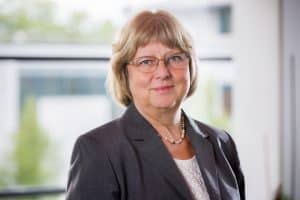There is a lot going on in the energy sector at the moment. As a result of numerous activities and events – be it diesel scandals or CO2 pricing, driving bans or Fridays-for-Future demonstrations, flight shame or real laboratories – more and more players are committing themselves to more sustainability as well as to hydrogen as an energy storage.
But this time it doesn’t seem to be just another FC and H2 hype. On the contrary, there is increasing evidence of the emergence of an actual energy turnaround. The HZwei editorial team therefore asked the long-standing H2 and FC expert Prof. Angelika Heinzel from the Zentrum für BrennstoffzellenTechnik Duisburg GmbH (ZBT) for answers to the following questions: What is different now from previous hypes? Where do you see any development potential? What are currently still obstacles? What must politics do?
Just two years ago the word electro-mobility was inseparably linked to the battery car, today it is different. Climate change requires comprehensive approaches; the storage of large quantities of electricity generated from renewable sources can only succeed with hydrogen technology. So there will be electrolysers and a hydrogen infrastructure. Since fuels are the most expensive energy sources that we burn (about 15 Ct/kWh for petrol compared to 7 Ct/kWh for natural gas) and battery cars have a limited range and require a longer charging process, the growing interest in fuel cell vehicles is logical. In addition, Japan, Korea and China rely on hydrogen and fuel cell vehicles, which our export-oriented industry cannot afford to ignore.
Conclusion: If we take climate protection seriously, there will be fuel cell mobility and a hydrogen industry will emerge. Achieving the 2030 CO2 reduction targets is still possible, but not with a simple “keep it up”.
Politicians must set a reliable framework and the right steering signals, and pursue the necessary change vigorously. Germany as a business location must not be neglected. The new products should and can be developed and manufactured in Germany in order to create new jobs. With the first hundred filling stations opened by the end of this year, it will be possible to drive a fuel cell vehicle in Germany. So it must now be our goal to bring enough vehicles onto the German market and to develop a business model from hydrogen technology.
The demand from fleet operators could ensure the acceptance of the first small-series vehicles, as Deutsche Post AG has done with the Streetscooter vehicles in the battery sector. After a start-up subsidy, the necessary cost reduction can be achieved through series production, also for fuel cell vehicles. However, filling stations for trucks are still largely lacking, and there is an urgent need for action here.
…
read more in H2-international October 2019
Author:
Prof. Angelika Heinzel
Managing Director Centre for Fuel Cell Technology Duisburg (ZBT)

























We have approval for a >8MW solar farm and interest in implementing batteries and hydrogen technology, FC EV and e-mobility display in general. ByronECOpark concept demonstrating Zero Emission Byron.